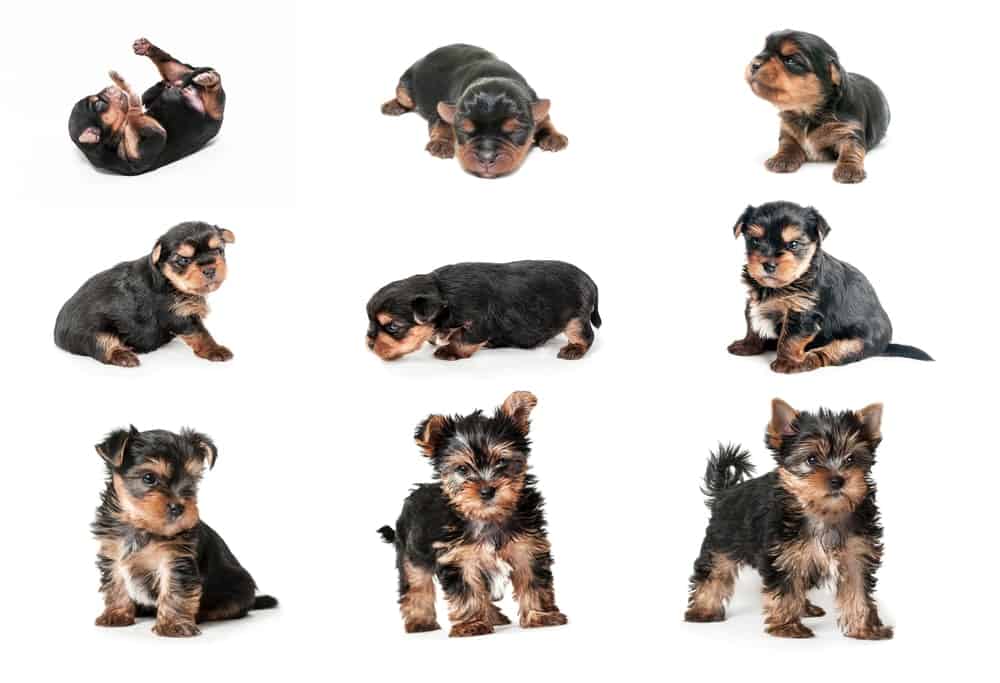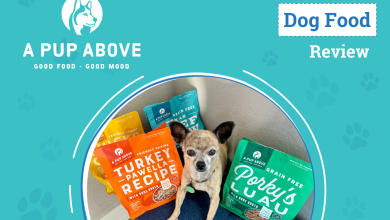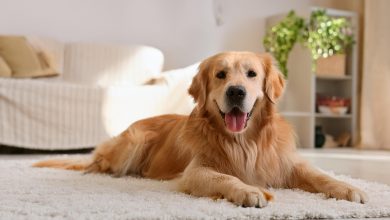
Just like babies, puppies go through various stages, from newborn to fully grown. Puppy development is split into various cognitive stages where they learn new tricks, make discoveries during their explorations.

What stages do puppies go through?
The stages of puppy development are often broken up into weeks. Puppies will go through a growth spurt every two to four weeks and experience a cognitive leap into new understandings of how the world works and what they can do with their bodies. The gap between these leaps begins increasing as they start growing and learning more complex tasks.
Most dog experts split their growth stages up into the following categories.
Birth – 2 weeks
The newborn stage; in this stage, your puppy is dependent on their mother to meet all their needs. Puppies are born not be able to see or hear; the only senses they have are touch and taste. They will ‘root’ for their mother by pulling themselves along with their front limbs.
Newborn puppies communicate with high-pitched squeaks and yelps. The mother will care for every need, from feeding to cleaning. If you plan on bonding with your puppy, it is the perfect time to familiarize them with your scent. Handle them carefully. Remember they will sleep a lot during this stage.
2 – 6 weeks
The transitional stage, This development stage starts at about two weeks of age; the puppy’s eyes open, and their hearing develops. Pups become aware of their surroundings, not just their mother and littermates. Puppies between 2 and 4 weeks old will take their first steps.
They discover playing and can leave their bed/sleeping area to relieve themselves. Puppies’ milk teeth start to form, and they should start to experiment with solid food. Try interacting and calling them; they will soon learn the sound of your voice. This stage is the first where they begin to interact with the world beyond their mother.
6- 8 weeks
New beginnings and socialization. Your puppy is developing at a rapid rate. They have figured out that they are a dog by now. Eight weeks is the ideal age for a puppy to go to a new home or stay with you and build on your loving bond.
Research has calculated that relocating a puppy to a new home is ideal on the 49th day. This is ideal for the puppy to learn and begin puppy training for manners and potty habits. This time is crucial as they can adapt to changes and cope with minor stresses. Your puppy will also be able to wean off his or her mother’s milk at this stage.
8 – 12 weeks
Fear stage. This stage is known as the imprint or fear stage. Your new puppy can form associations with objects. This stage is where fear is born and bred in a dog. Pups at this stage should be handled with care, and it is best to avoid any scares.
During this stage, you should focus on creating as many happy moments and positive experiences. Positive reinforcement at this stage is vital to a happy dog. The same soft cooing that soothes a baby works well for puppies too. Make sure to encourage them and foster an internal sense of security in your puppy, especially at the end of this period.
3 – 6 months
This period marks the end of the fear period; puppies are a bundle of energy at this age. The fear they felt in the last stage is replaced with abundant curiosity; they become explorers and discover chewing art. At 16 weeks, puppies may develop itchy gums from adult teeth, so this is the perfect time to get your pup plenty of chewy toys.
This stage is vital in training and keeping a routine. Your dog will be testing boundaries with their boundless energy. Maintaining a calm and collected training schedule is a good idea. It would be best if you neuter your dog around the six-months of age mark; this prevents hormonal fluctuations that can cause issues later in life.
6 – 18 months
Any training that has been before this point has all been in preparation for this stage. If you have cemented in training, this stage will not be too hard to get through. Puppies become instinctual creatures at this phase.
Their sense of independence skyrockets and they will not need you as much anymore. They will want to explore independently, so keep them on a tight leash. Puppies need to be guided and encouraged to stay by your side.
Another fear stage might develop again during this period. It is essential to maintain a routine and consistency in your puppy’s life. With the right guidance, they will mature into mature, and house trained adult dogs.
18 months and beyond
This is the springboard stage before adulthood. You should reinforce house training and good social skills in your dog. They develop self-control during this period. Your dog’s personality should be evident at this stage – cute!
This stage is all about bonding with your dog and developing a routine around their favorite activities. You will learn how your dog likes to do things and develop a routine from there.
Fostering safety and happiness
There is no doubt that puppies are clumsy and boisterous. Much in the same way that we baby proof our homes for new babies, you should do the same for puppies. They often have boundless energy and can tear through a house pretty quickly. That being said, there’s no better feeling than inviting a new pooch into your home and into your heart. Keep in mind your puppy should be handled with care, especially during the fear stage. Try setting up some home solutions to prevent falls, such as ramps for climbing onto furniture or baby gates to keep them out of the kitchen or other areas that are not safe.
About the Author:
Emma is a professional writer and blogger, with two furry friends and a lot of pet behavioral and pet health knowledge to share. She has written for numerous big animal magazines and health sites, and is a regular contributor to The Catington Post.



